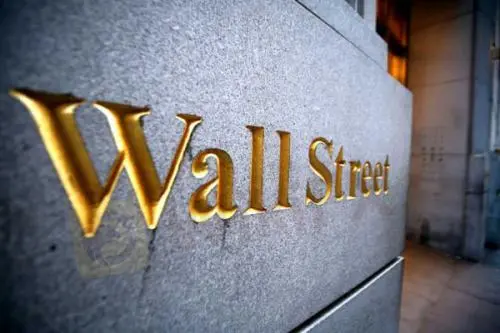简体中文
繁體中文
English
Pусский
日本語
ภาษาไทย
Tiếng Việt
Bahasa Indonesia
Español
हिन्दी
Filippiiniläinen
Français
Deutsch
Português
Türkçe
한국어
العربية
Wall Street's fear index slides as equities set new record highs
Abstract:Wall Street's fear index slides as equities set new record highs

The S&P 500 VIX or volatility gauge, also known as Wall Street's fear index, crashed to 20 on Friday, having reached a multi-month high of 40 at the end of January.
The VIX spiked two weeks ago as co-ordinated buying in out of favor stocks such as GameStop inflicted heavy losses on hedge funds holding short positions and triggered fears of a broad-based market sell-off.
However, these fears subsided last week, with GameStop falling 80%. Besides, comments from the US Treasury Secretary Janet Yellen pushing for fiscal stimulus, improving coronavirus numbers, and upbeat US data calmed market nerves, helping stocks regain poise.
The S&P 500, Wall Street's benchmark index, clocked a new lifetime high of 3894.56 on Friday. The renewed risk-on is bad news for haven currencies such as the US dollar and the Japanese yen.
Disclaimer:
The views in this article only represent the author's personal views, and do not constitute investment advice on this platform. This platform does not guarantee the accuracy, completeness and timeliness of the information in the article, and will not be liable for any loss caused by the use of or reliance on the information in the article.
Read more

These Are How Millionaire Forex Traders Think and Act
It's no secret that in the world of trading, the most difficult thing is realization. Everyone can expect to be a successful trader, a trader who wins a lot of money, to a millionaire trader. But all this could be a dream if they didn't try to chase it.

How to Register Forex Trading, 5 Easy Steps to Follow
Foreign exchange has been developed and turned into something big in all of society. Not just office employees, but also students, kids in school, housewives, and even the unemployed.

Pip In Forex Trading, The Relation to Profitability
Pip or price interest point or percentage in point is a measurement tool associated with the smallest price movement any exchange rate makes. Usually, there is four decimal places used to quote currencies.

Euro Drops to 2-Decade Low on Recession Fears
Worries about how the European Central Bank will react also undermined sentiment after Germany's Bundesbank chairman Joachim Nagel lashed out at the ECB's plans to try and protect heavily indebted countries from sharp increases in lending rates.
WikiFX Broker
Latest News
ASIC Sues Binance Australia Derivatives for Misclassifying Retail Clients
Geopolitical Events: What They Are & Their Impact?
Top 10 Trading Indicators Every Forex Trader Should Know
WikiFX Review: Is FxPro Reliable?
Trading frauds topped the list of scams in India- Report Reveals
Malaysian-Thai Fraud Syndicate Dismantled, Millions in Losses Reported
Why Do You Feel Scared During Trade Execution?
Revolut Leads UK Neobanks in the Digital Banking Revolution
Fusion Markets: Safe Choice or Scam to Avoid?
SEC Approves Hashdex and Franklin Crypto ETFs on Nasdaq
Currency Calculator



